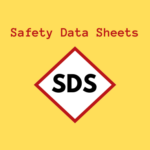Empowering Quality Management Systems with Artificial Intelligence: A Leap Forward in Efficiency and Accuracy

Artificial Intelligence (AI) has emerged as a transformative force in the continuously evolving domain of quality management. Its integration has revolutionized how organizations approach quality control and assurance, reshaping traditional methodologies and paving the way for exceptional efficiency and innovation within quality management systems (QMS). With AI at the forefront, QMSs are undergoing a profound evolution, becoming not only more efficient but also more intuitive and predictive, marking the onset of a new era of operational excellence. Let’s delve into some benefits that AI brings to QMS:
- In-Context Help for Users: One of the standout features of integrating AI into QMS is its ability to provide in-context assistance to users. Through intelligent algorithms and natural language processing (NLP), AI can offer real-time guidance and support, helping users navigate complex processes with ease. Whether it’s troubleshooting issues, accessing relevant documentation, or clarifying procedures, AI-driven assistance enhances user experience and fosters greater confidence in QMS utilization.
- Automated Record Creation: Manual data entry and record-keeping can be labor-intensive and error-prone. AI streamlines this process by automating record creation and maintenance. By analyzing data inputs and situational prompts, AI algorithms can generate comprehensive records in a fraction of the time it would take manually. This not only reduces the administrative burden but also ensures data accuracy and consistency, laying a solid foundation for robust quality management practices.
- Predictive Analytics: AI-enabled QMS have the capacity to analyze vast amounts of data to identify patterns, trends, and anomalies. By leveraging predictive analytics, organizations can anticipate potential quality issues before they escalate, enabling proactive interventions and risk mitigation strategies. Whether it’s forecasting product defects, predicting equipment failures, or optimizing production schedules, AI-driven insights empower organizations to stay ahead of the curve and maintain high standards of quality.
- Task Scheduling and Optimization: Effective task management is crucial for maintaining operational efficiency and meeting quality objectives. AI-equipped QMS excels in task scheduling and optimization, allocating resources intelligently and prioritizing activities based on urgency and impact. Whether it’s scheduling maintenance activities, coordinating inspections, or managing workflow queues, AI algorithms optimize resource utilization and minimize downtime, ensuring smooth operations and timely deliverables.
- Continuous Improvement: Quality management is a journey of continuous improvement, and AI serves as a catalyst for this ongoing evolution. By analyzing performance metrics and feedback loops, AI-driven QMSs facilitate data-driven decision-making and process optimization. Through iterative refinement and adaptive learning, organizations can enhance their quality management practices iteratively, driving efficiency gains, and fostering a culture of excellence.
- Enhanced Compliance and Audit Trail: Regulatory compliance and audit readiness are paramount in industries governed by stringent standards and regulations. AI-enhanced QMS offers robust compliance features, ensuring adherence to regulatory requirements and facilitating audit trail transparency. By automating compliance checks, documenting process deviations, and generating comprehensive audit reports, AI empowers organizations to navigate regulatory complexities with confidence and peace of mind.
In conclusion, the integration of AI into quality management systems represents a model shift in how organizations approach quality assurance and control. From providing in-context help to users and automating record creation to offering predictive analytics and task scheduling, AI-driven QMS are poised to revolutionize quality management practices. As Trackmedium QMS embarks on its journey into AI, leveraging these transformative benefits into its system, it becomes a competitive and efficient choice for anyone seeking a QMS that adapts to the accelerated pace of this era. In essence, AI is not just a tool for optimization but a strategic asset that empowers organizations to achieve excellence in quality management. By embracing AI-driven QMS solutions like Trackmedium, organizations can embark on a transformative journey towards unparalleled efficiency, effectiveness, and success in today’s dynamic business landscape. By embracing AI, organizations can unlock new levels of efficiency, accuracy, and agility, propelling them toward excellence in quality and competitiveness in the global marketplace.
Image by Freepik


















